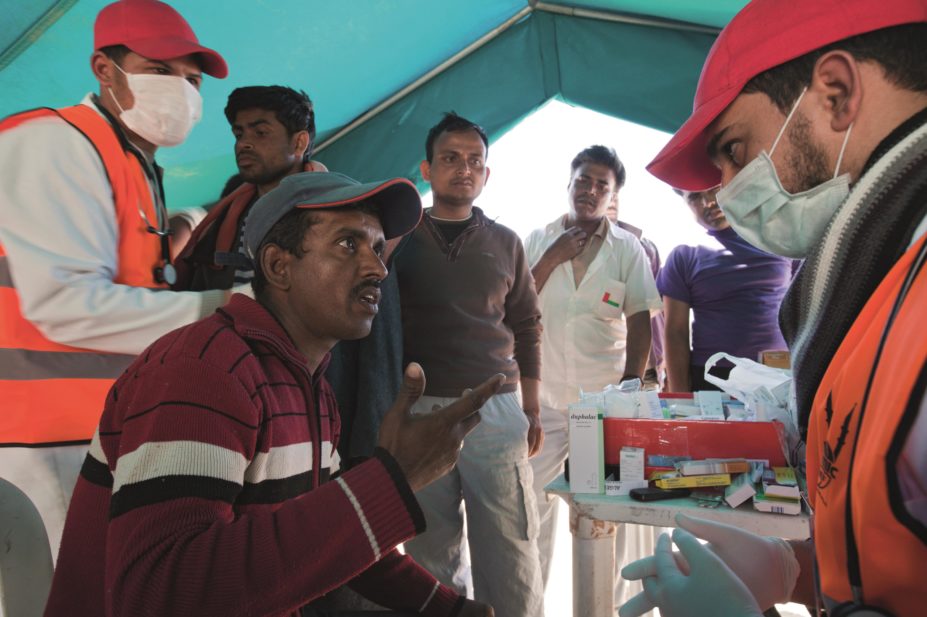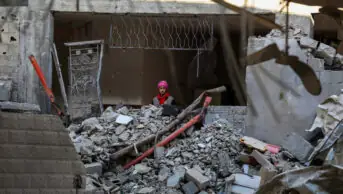
Agencja Fotograficzna Caro / Alamy
The global health community needs to act to stem violent attacks against health workers in conflict hotspots, which seriously impede people in need from receiving life-saving health services, says a global report by rights advocacy groups.
“Targeted attacks on health undermine and sometimes destroy health systems and infrastructure, force health workers to flee areas where they are most needed, and prevent children from getting essential vaccinations, ” says a joint report by Human Rights Watch and the Safeguarding Health in Conflict Coalition.
The report, launched during the 2015 World Health Assembly held in Geneva over 18–26 May 2015, cover attacks between January 2014 and April 2015 in 17 countries. It highlights armed group attacks on hospitals, clinics and health personnel in 41 incidents in Afghanistan and the deliberate killing of more than 45 health workers, primarily polio vaccinators, in Nigeria and Pakistan.
In war-torn Syria since 2014, medical facilities in Aleppo have been hit with government barrel bombs, 194 medical personnel have been killed and 104 medical facilities attacked.
“Brave and courageous health care workers risk their lives to help people in these countries and some of them pay the ultimate sacrifice. We need to minimize this,” said Margaret Chan, the director-general of the World Health Organization.
Leonard Rubenstein, chair of the coalition, said: “All parties to a conflict have to respect the laws of war and protect health facilities and all civilian objects.” The destructive effects of the attacks on the delivery of care are huge, he added.
According to Bruce Aylward, the WHO’s senior official for emergency risk management and humanitarian response, 603 health care workers were killed and 958 injured in 32 countries in 2014.

